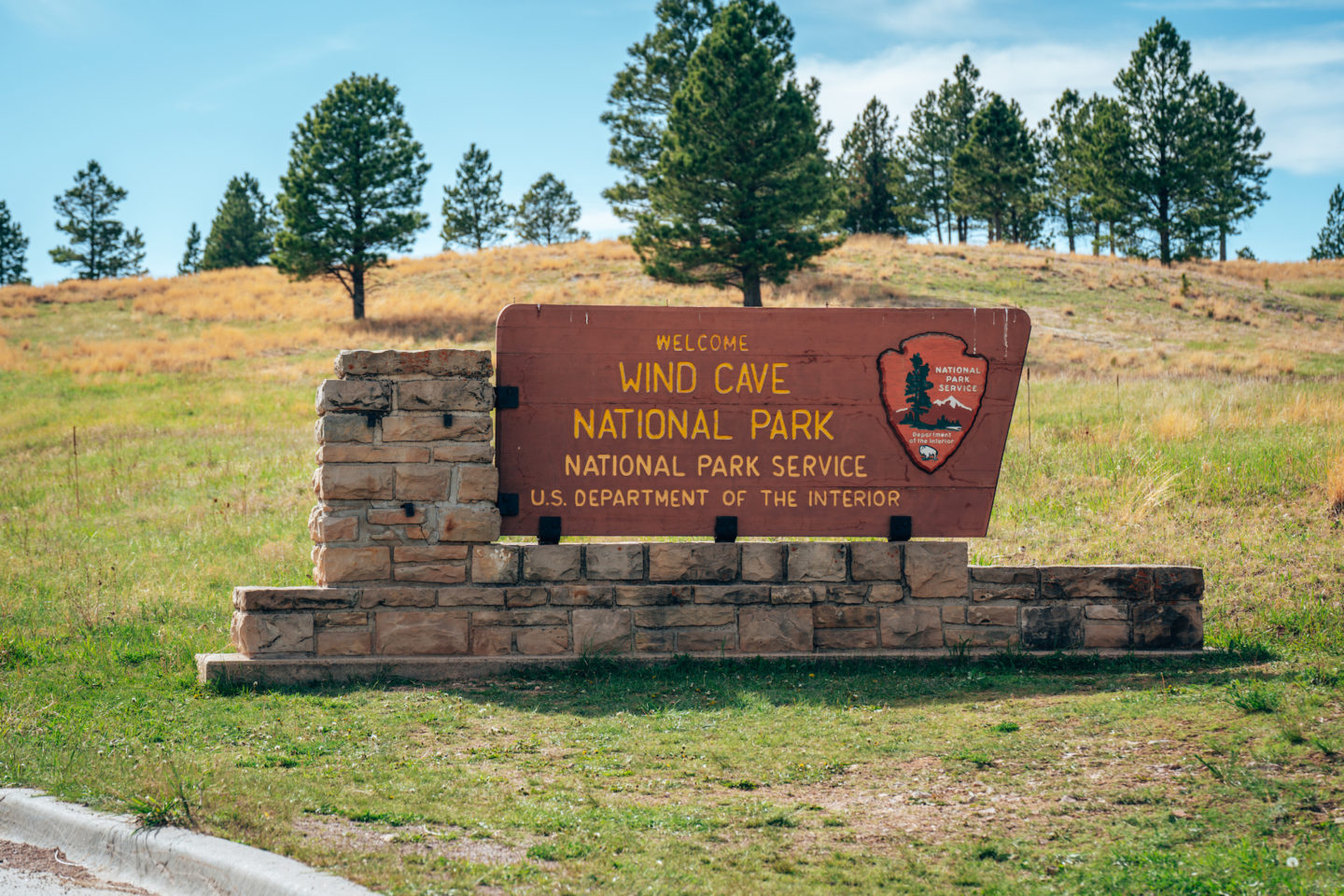
Bison, elk, deer and prairie dogs above ground; stalactites, stalagmites and boxwork below ground — Wind Cave National Park is so much more than just a cave. Our hope is this guide will give you everything you need to plan a trip to Wind Cave National Park in South Dakota!
THE BLACK HILLS OF SOUTH DAKOTA
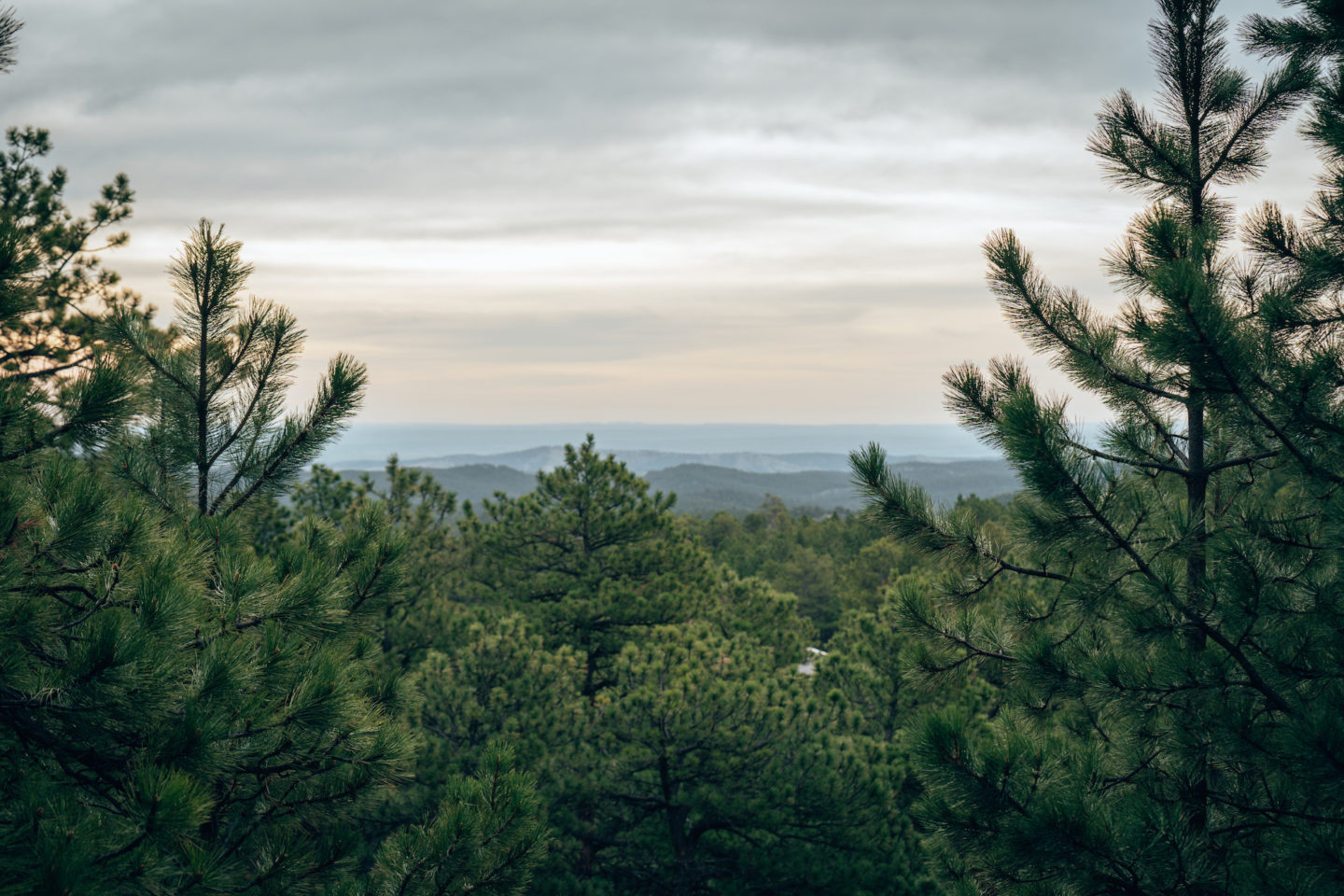
The Black Hills National Forest spans as far south as Hot Springs South Dakota and as far north as Spearfish South Dakota. In fact, six of The Great 8 are located in The Black Hills of South Dakota: Wind Cave National Park, Custer State Park, Jewel Cave National Monument, Mount Rushmore National Memorial, Crazy Horse Memorial and Historic Deadwood. It even spills over in to Wyoming to where Devils Tower is located. This area of the state truly made us fall in love with the state.
WHERE IS WIND CAVE NATIONAL PARK
Wind Cave National Park is one of two National Parks of South Dakota, with the second being Badlands National Park, which you can read about HERE. Both parks are located in the Black Hills & Badlands region of southwestern South Dakota. Wind Cave is located in the southeastern part of the Black Hills National Forest, and is roughly a 50 minute drive south from Rapid City. Look for the orange icons in the map above.
THE LAKOTA EMERGENCE STORY AND HISTORY OF WIND CAVE
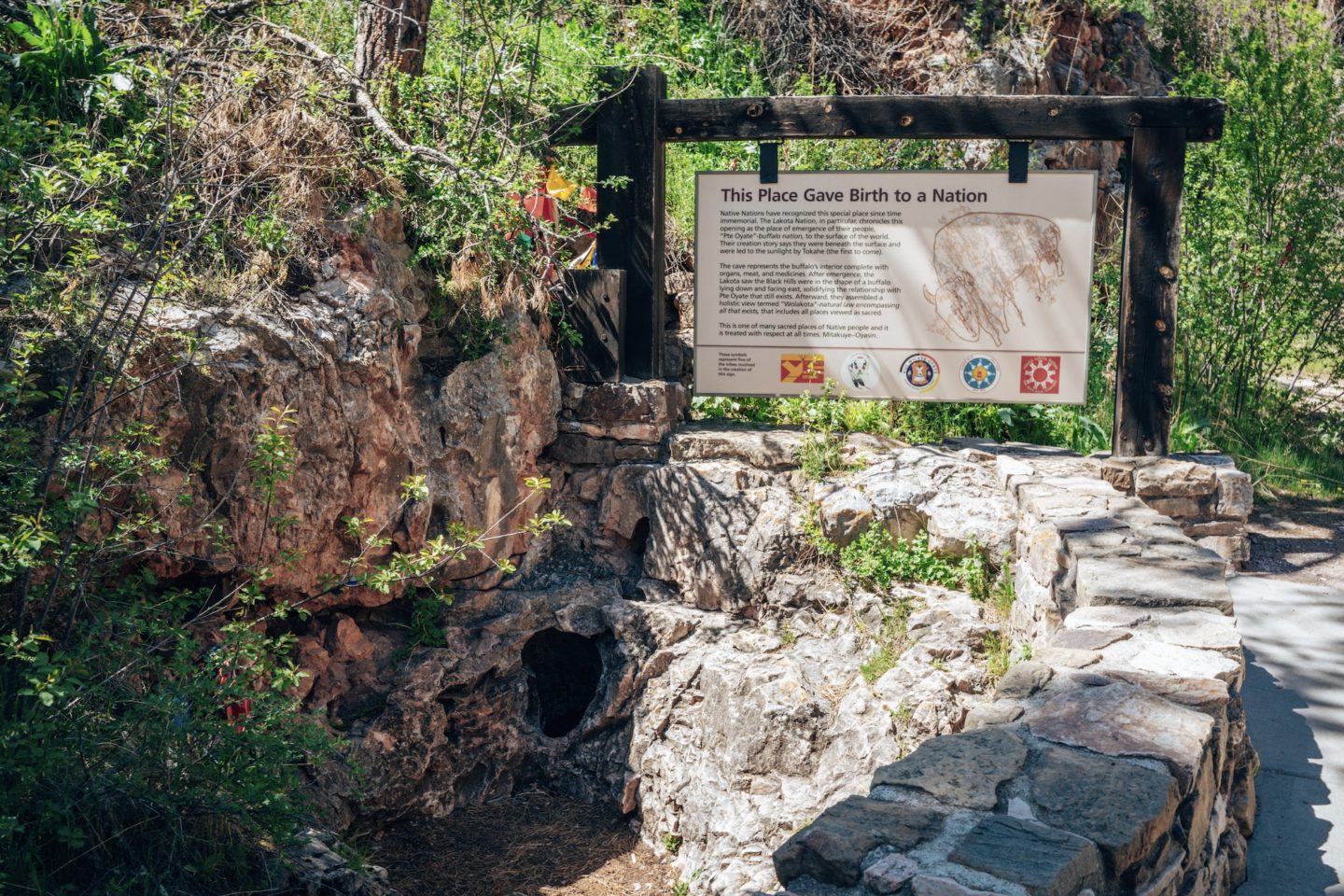
There is only one natural entrance to the Wind Cave system, and it is about the size of a basketball. This cave is a huge part of The Lakota American Indian history and culture. It is said that this entrance (or exit in this case) was a portal for the Lakota people to leave the spirit world below and emerge above to Earth. You can learn more about this by watching a great video HERE.
The cave was “discovered” by two white people (Tom and Jesse Bingham) in 1881 when they noticed wind blowing out of the hole. As pressure systems rise and fall, wind will change direction at the Natural Entrance and go from blowing out to blowing in. In 1903 Theodore Roosevelt passed a bill to make this a National Park, and in 1938 the manmade elevator shaft was completed.
THINGS TO DO IN WIND CAVE NATIONAL PARK
The million dollar question to every trip, what is there to do? Despite being one of the smallest National Parks in the U.S. (52nd out of 63), there is still a fair amount of things to do here.
CAVE TOURS
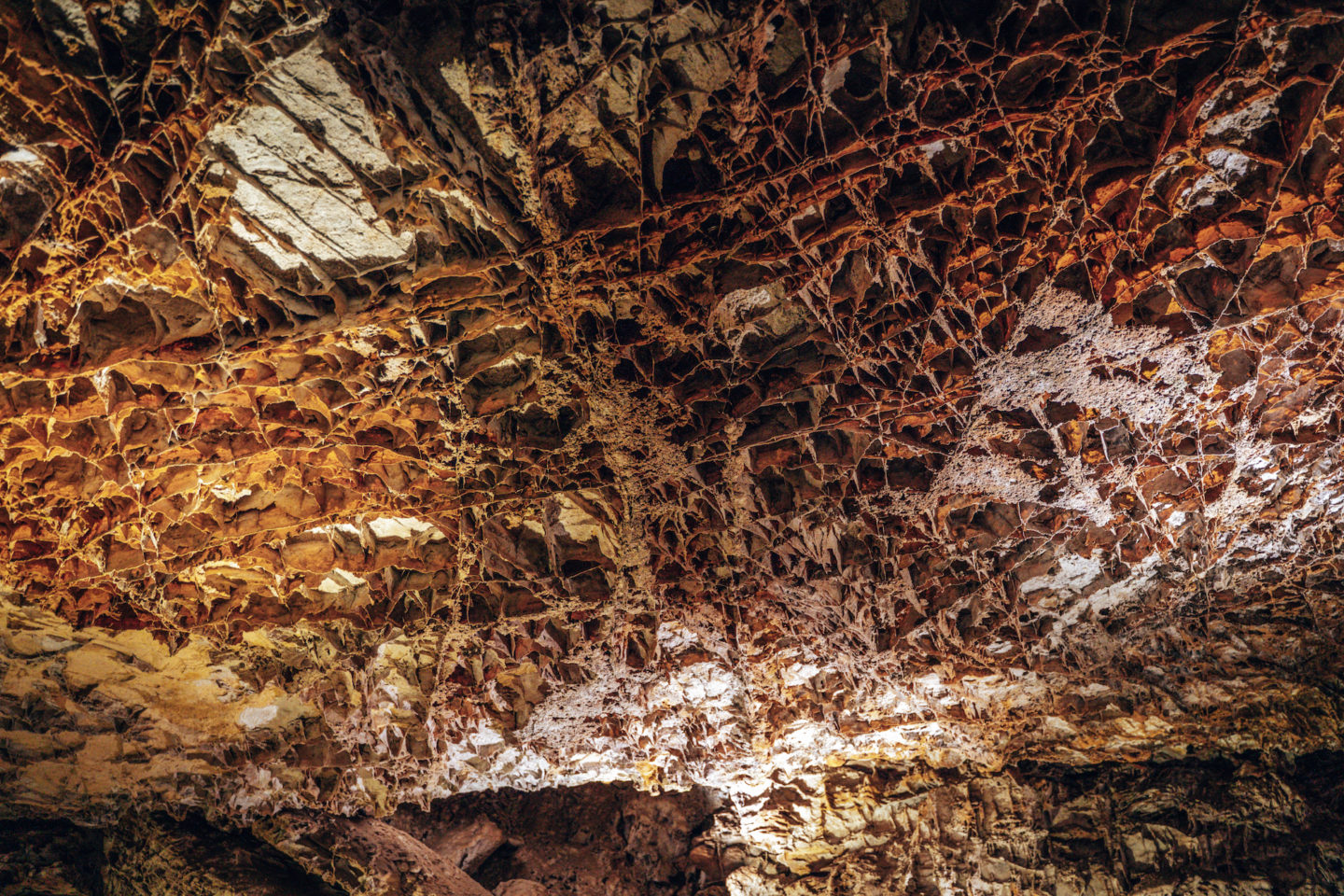
With the main attraction of this park being the cave system, this is definitely the activity you should put the most attention towards. Wind Cave National Park is known for being one of the longest and most complex cave systems in the world, as well as having 90% of the world’s boxwork. Boxwork is seen in the image above. How these formations were formed is still somewhat of a mystery, but is believed to be due to these caves having been filled with water many many years ago, and as the water level dropped, the limestone and other materials leaving behind these thin blades.
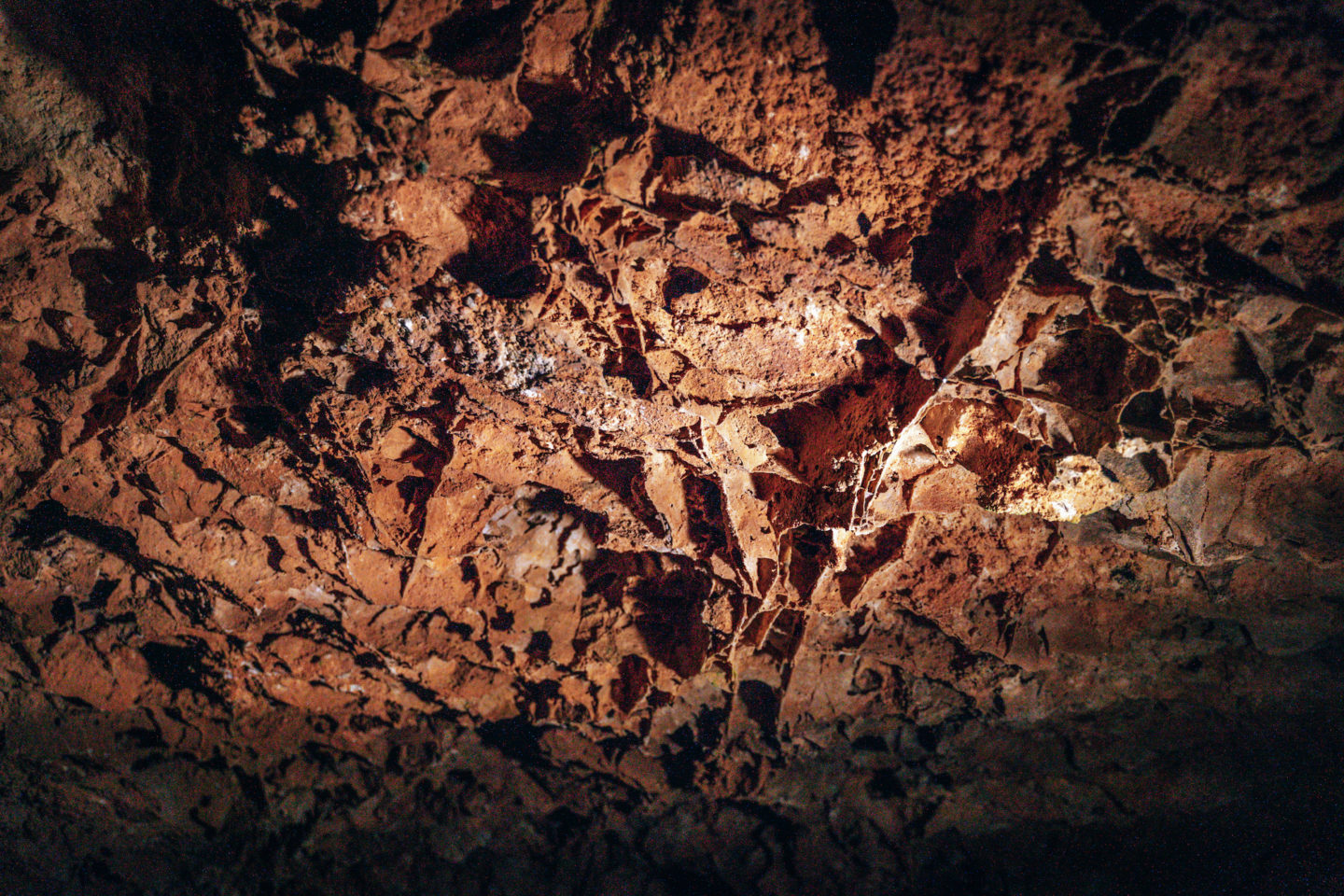
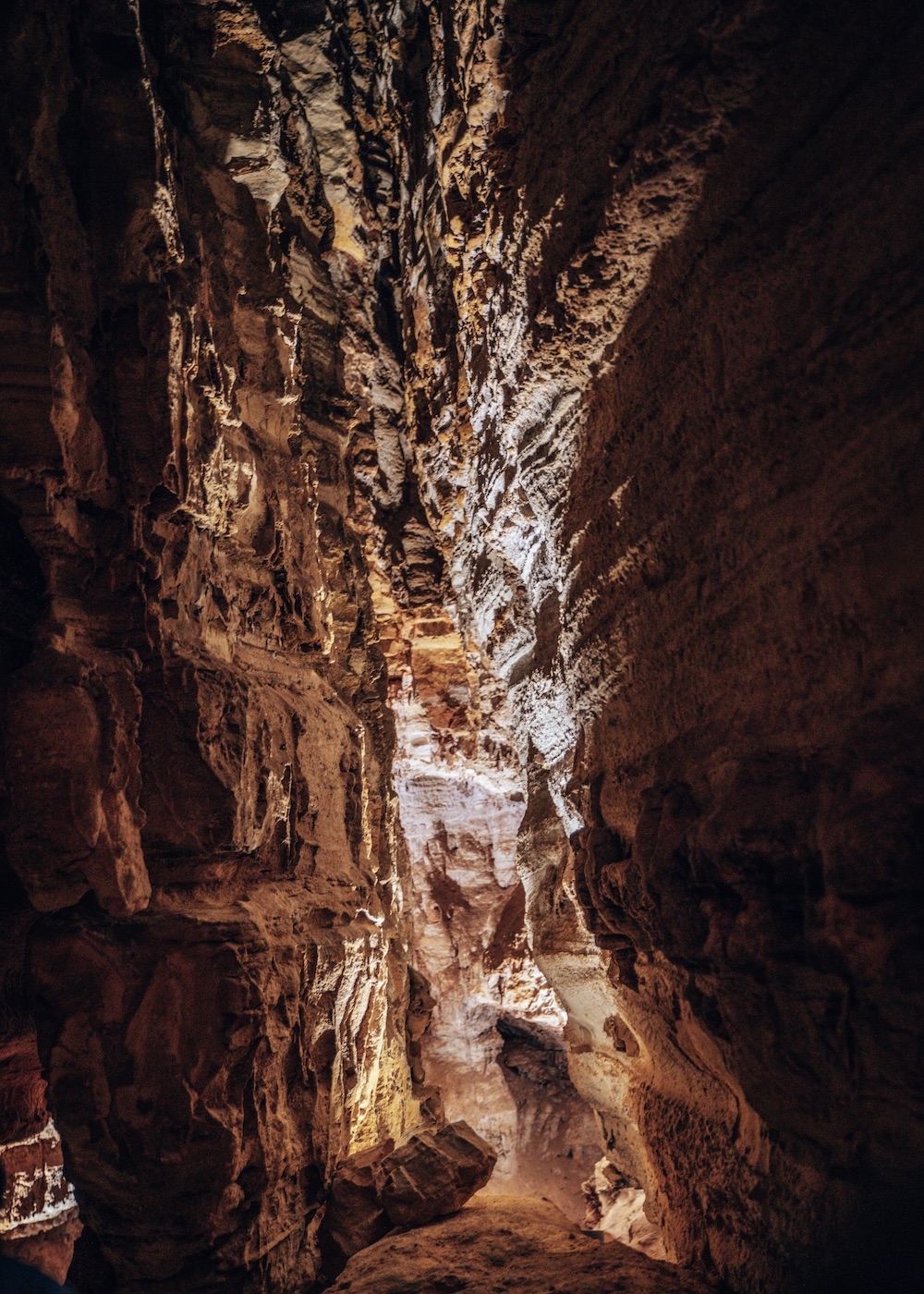
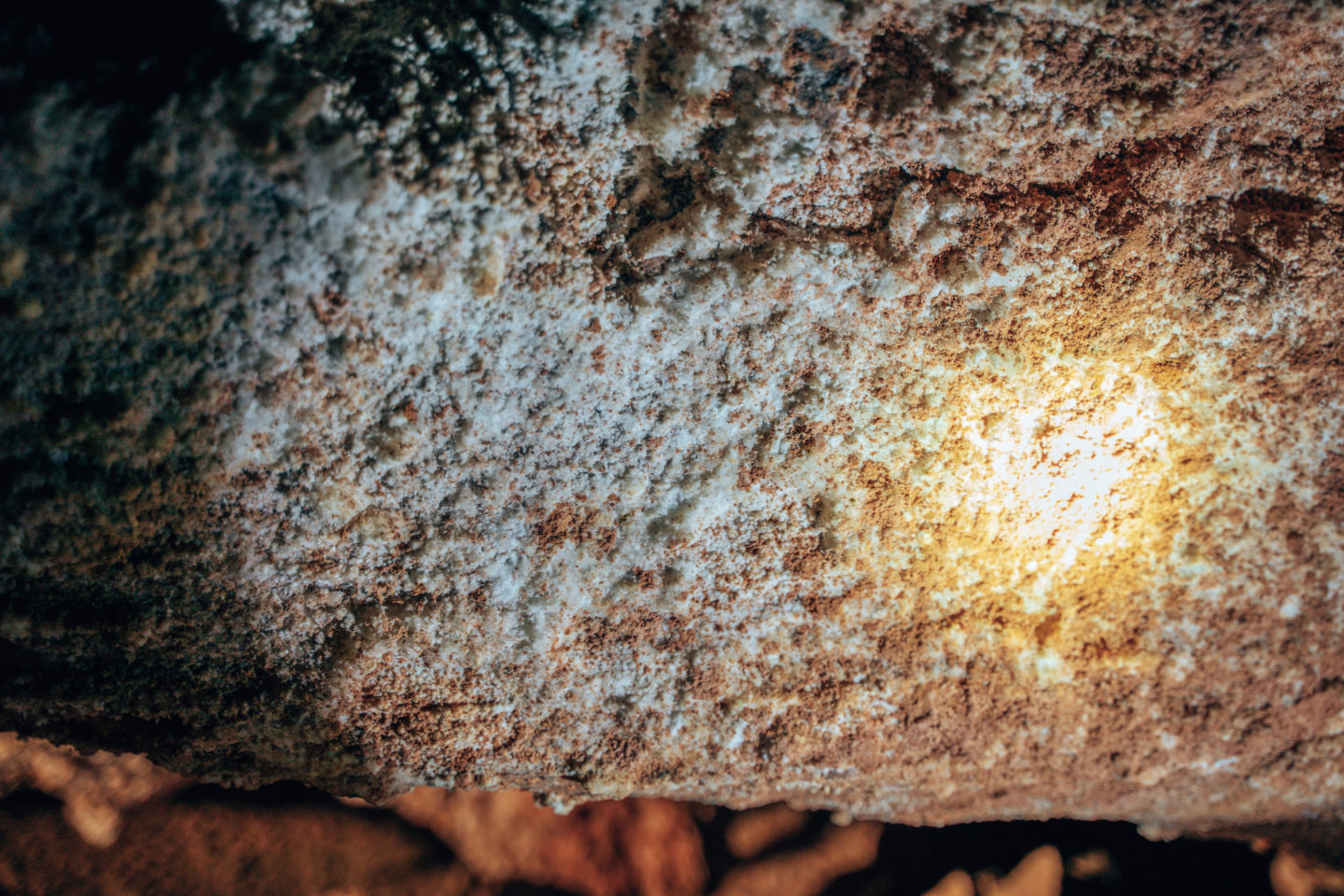
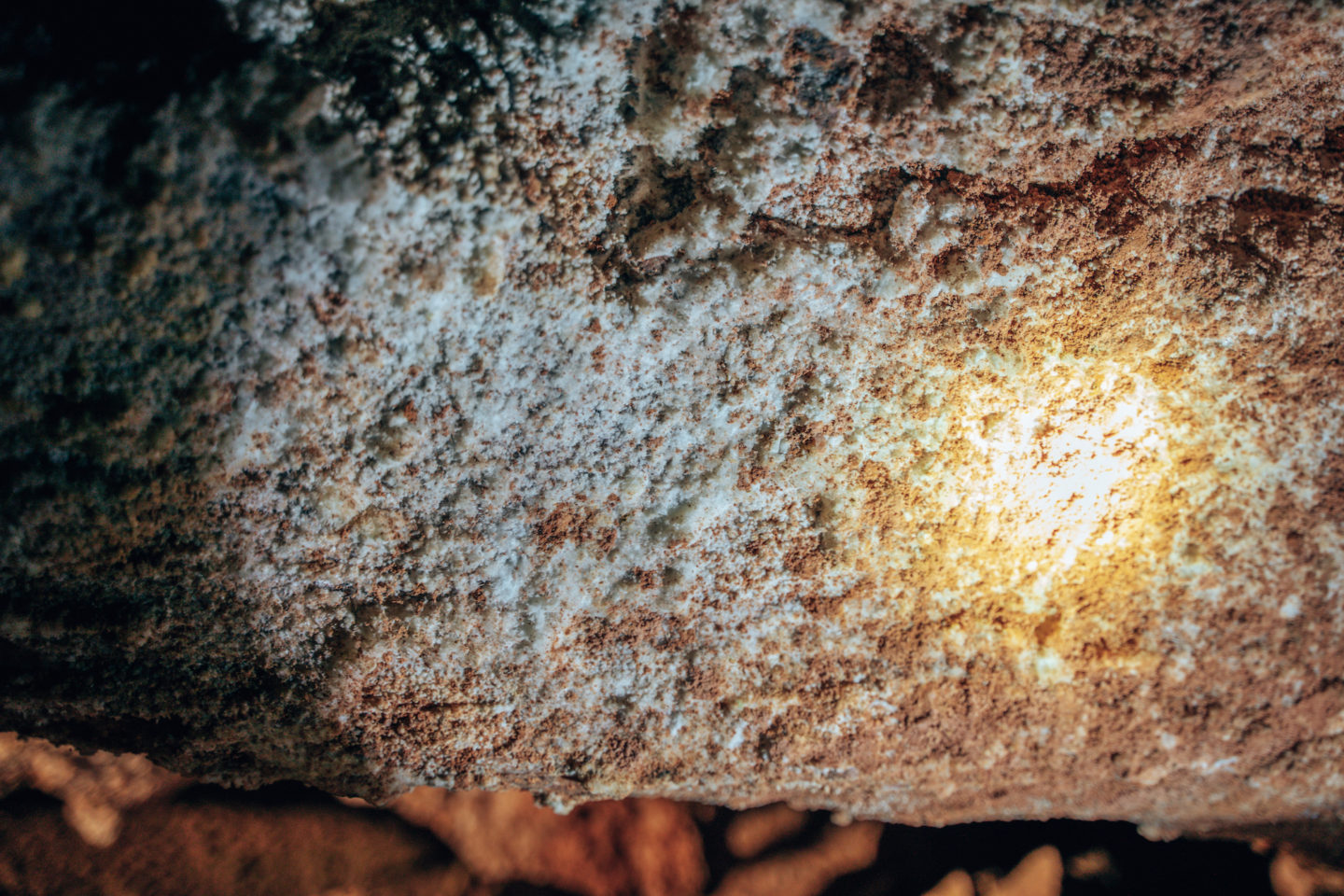
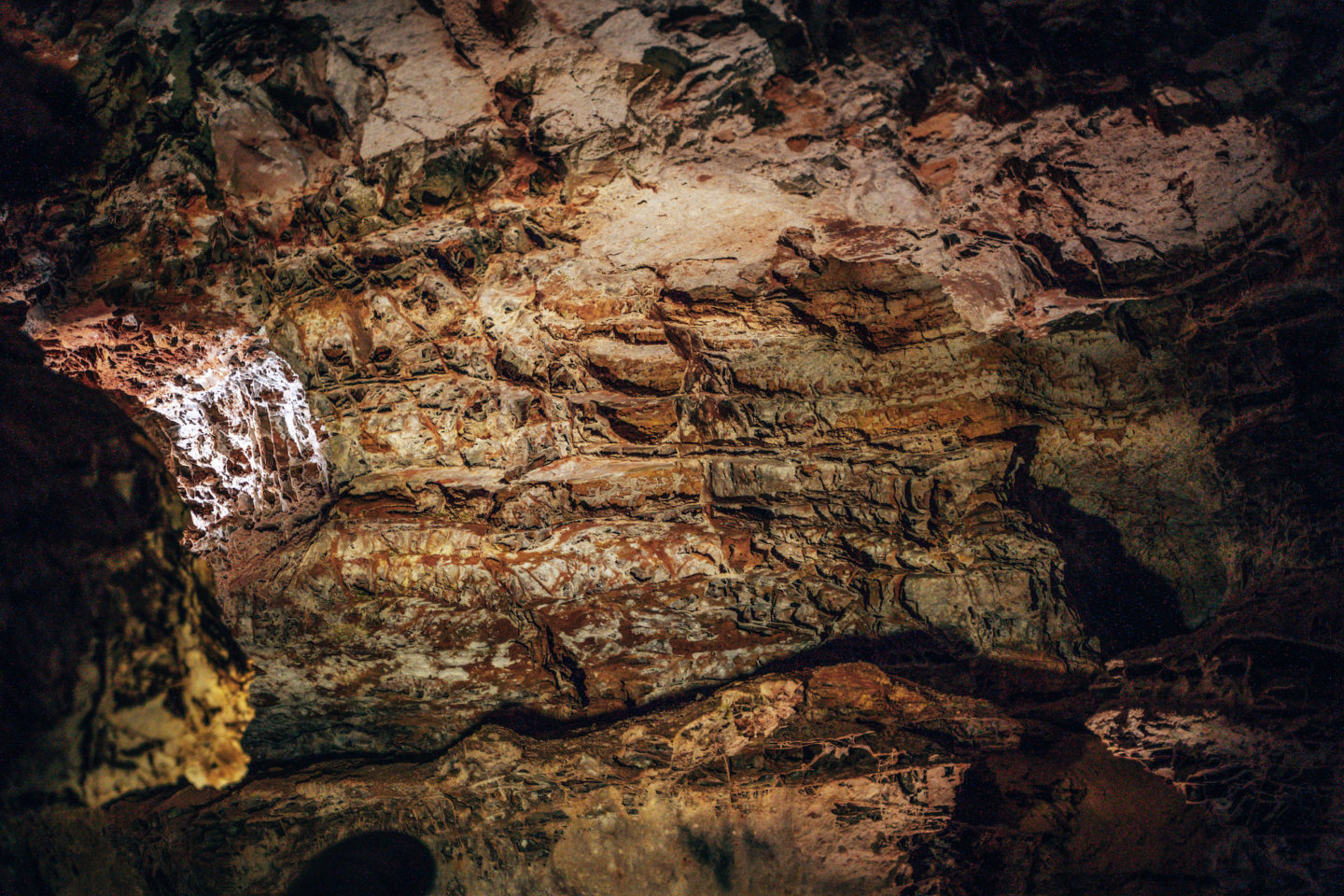
The only way to get down in to the cave system is by elevator, and many of the cave areas are very steep and narrow, not to mention delicate. For these reasons, all cave tours are ranger guided.
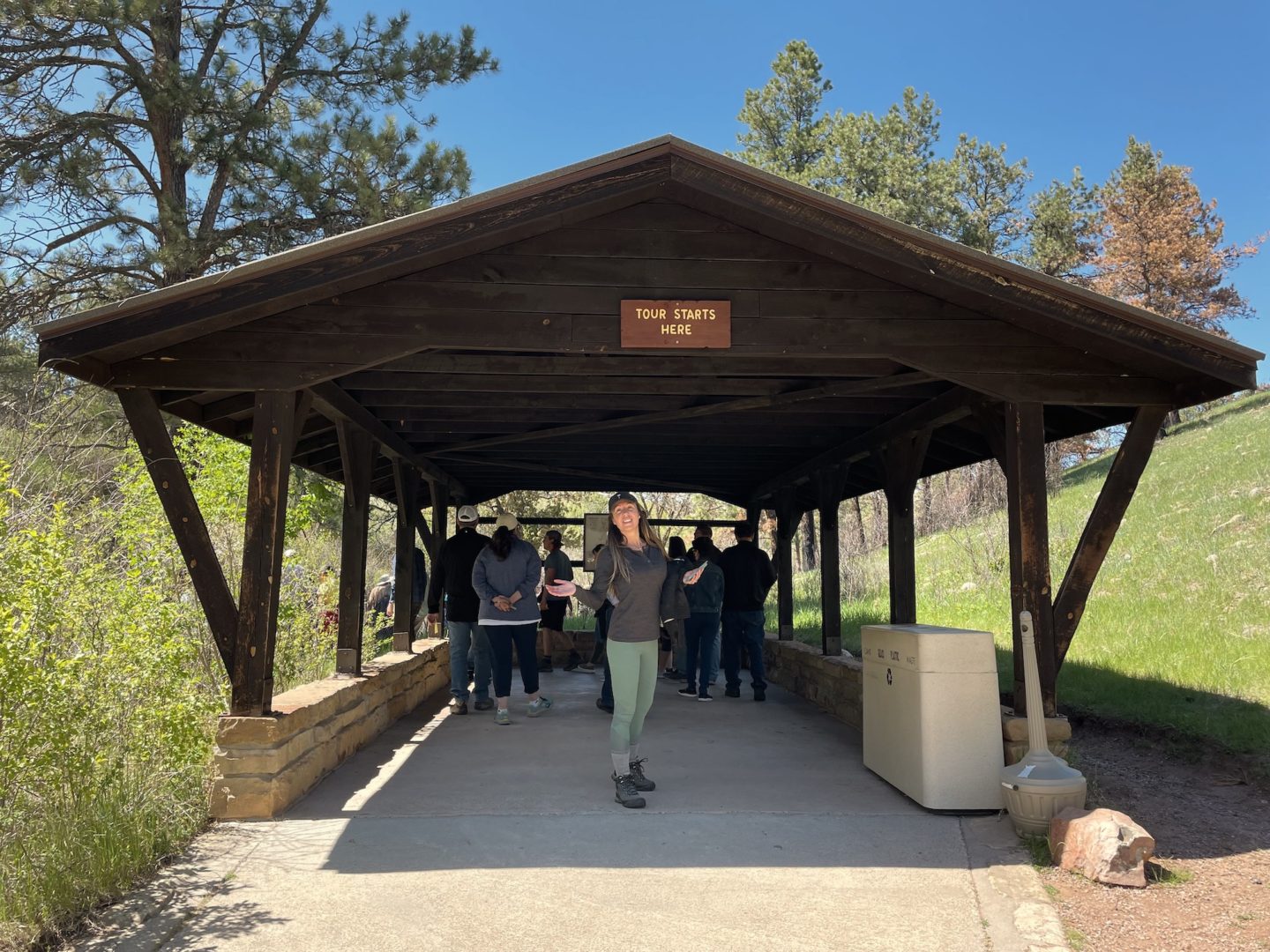
GARDEN OF EDEN TOUR
- DIFFICULTY – Moderate
- LENGTH – 0.3mi / 0.5km
- DURATION – 1hr
NATURAL ENTRANCE TOUR
- DIFFICULTY – Moderate
- LENGTH – 0.7mi / 1km
- DURATION – 1hr 15m
FAIRGROUNDS TOUR
- DIFFICULTY – Strenuous
- LENGTH – 0.7mi / 1km
- DURATION – 1hr 30m
The Natural Entrance Tour is by far the most popular, and will give you the best overall experience learning about the park and its history. Tours can be booked HERE.
HIKING
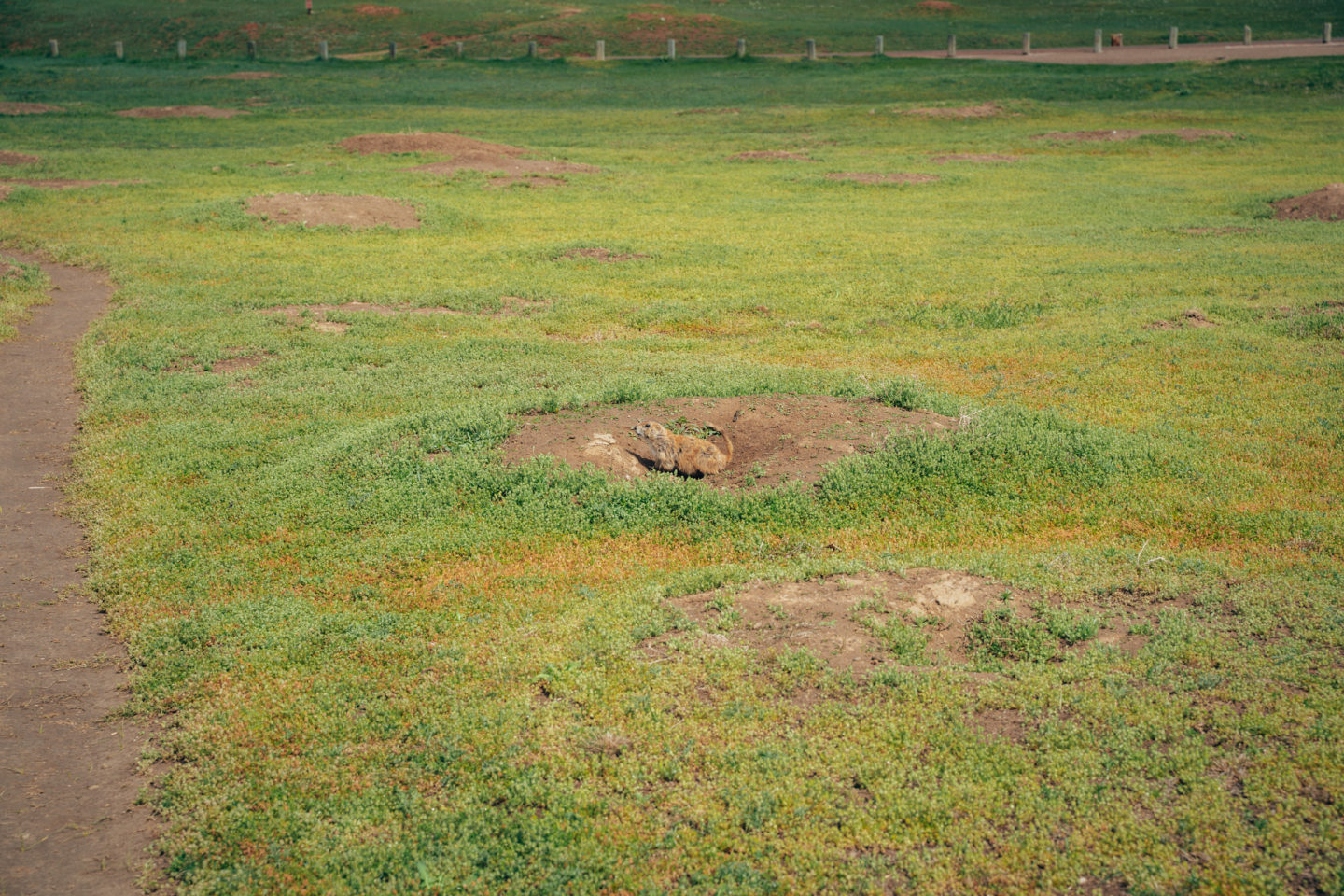
Despite the caves below being the main attraction, there is actually quite a bit to see and explore above ground. There are 8 official hiking trails inside the park. Most of the trails are moderate to strenuous in difficulty, mostly due to length. Pick one of these to tack on to your cave tour, and you could easily feel like you’ve immersed yourself in the park.
- COLD BROOK CANYON
- DIFFICULTY – Moderately to strenuous
- LENGTH – 1.4mi / 2.3km round trip
- WIND CAVE CANYON
- DIFFICULTY – Moderately to strenuous
- LENGTH – 1.8mi / 2.9km round trip
- EAST BISON FLATS
- DIFFICULTY – Moderate to strenuous
- LENGTH – 3.7mi / 6km round trip
- LOOKOUT POINT
- DIFFICULTY – Moderate to strenuous
- LENGTH – 2.2mi / 3.5km round trip
- SANCTUARY
- DIFFICULTY – Moderately to strenuous
- LENGTH – 3.6mi / 5.8km round trip
- CENTENNIAL
- DIFFICULTY – Moderately to strenuous
- LENGTH – 6mi / 9.7km round trip
- HIGHLAND CREEK
- DIFFICULTY – Strenuous
- LENGTH – 8.6mi / 13.8km round trip
- BOLAND RIDGE
- DIFFICULTY – Strenuous
- LENGTH – 2.6mi / 4.2km round trip
*Disclaimer: pets are not allowed on any of these trails. There are two additional trails where pets are allowed: The Prairie Vista Trail and Elk Mountain Campground Trail.
There are a number of other hiking options, to view them all, you can visit the NPS website for more info HERE.
WILDLIFE WATCHING
There is no shortage of wildlife to view in and around this park. Throughout many areas of the park you’ll see prairie dogs and bison roaming the prairies. If you’re lucky, you may get to see some elk, coyote or pronghorns.
PRAIRIE DOG TOWN & BISON FLATS
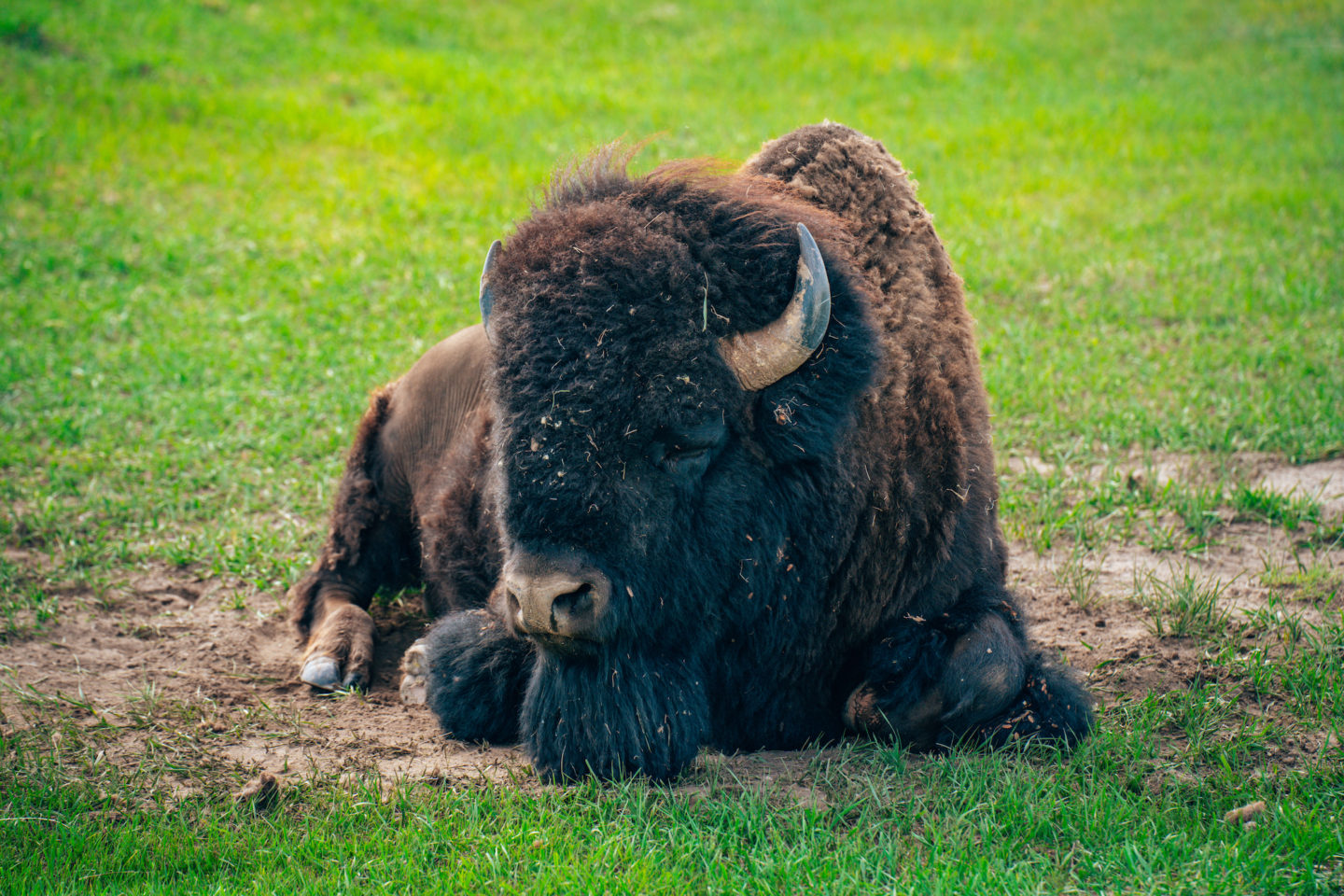
There are two primary areas where you can see an abundance of bison and prairie dogs: Prairie Dog Town and Bison Flats. In both of these areas, you’ll see both animals grazing in large groups. So keep that camera handy!
Disclaimer: Please keep a distance of at least 25 yards from all animals, but most importantly the bison. These are very large animals and you do not want to put yourself in a position of risk.
BICYCLING
If you are an avid bicyclist, then you should probably consider bringing your bike here. This is a great way to experience the above ground part of the park, and view the wildlife! Cycling is only allowed on established roads, like NPS 5 and NPS 6.
BACKCOUNTRY CAMPING
Backcountry camping is permitted inside the park, but only in the northwest area. There are quite a few things to keep in mind before setting out on a backcountry camping trip in the Wind Cave, so make sure to double check the National Park website for the full list of requirements, HERE.
VISITOR CENTERS
There is one visitor center, the Wind Cave Visitor Center. Cell phone service is almost non-existent in the park, and GPS directions can be spotty, so much so that the NPS website has a disclaimer about how to get to the visitor center, “The Visitor Center is located 11 miles north of Hot Springs off U.S. Hwy 385, about 1/2 mile west from the highway. Do not use your GPS to find the visitor center — you will get lost. Many GPS units locate the park visitor center north on State Road 87. The coordinates for the Visitor Center are N43 33′ 22″ W103 28′ 38″.” You can get more info HERE.
WHERE TO STAY IN WIND CAVE NATIONAL PARK
If you’re looking to stay inside the park, there is only one option: The Elk Mountain Campground which is just beyond of the Wind Cave Visitor Center. Here you’ll find tent & RV sites which are first come first serve. Beyond this, all other lodging options will be outside of the park.
Just outside the park in Custer and Hot Springs, you’ll find a number of lodging options.
Since the park is relatively small, we opted for a day visit and did not lodge in or around the park.
BEST TIME TO VISIT WIND CAVE NATIONAL PARK
We’ll preface this with the usual disclaimer that this really depends on your personal preferences and interests. However, there are a few things to keep in mind which may sway you one way or the other.
SEASONS
The temperatures in South Dakota can range from scorching hot, to ice cold depending on the time of year. Inside the cave, the temperature remains relatively consistent year round at 54ºF / 12ºC. Peak season for visiting is summer, so spring and fall would be ideal.
SPRING
- Avg Low temps – 35ºF / 2ºC
- Avg High temps – 60ºF / 16ºC
SUMMER
- Avg Low temps – 45ºF / 7ºC
- Avg High temps – 80ºF / 27ºC
FALL
- Avg Low temps – 45ºF / 7ºC
- Avg High temps – 75ºF / 24ºC
WINTER
- Avg Low temps – 15ºF / -9ºC
- Avg High temps – 35ºF / 2ºC
The park is open 24 hours a day, 365 days a year. However during winter months, the Visitor Center and tour operations are limited, so we’d recommend checking the NPS before visiting.
HOW MUCH TIME IS NEEDED
How much time you need to plan for in a place, is one of the most important questions to answer when planning a trip. I have good news for you, to really immerse yourself and get the full experience at Wind Cave National Park, you do not need a ton of time. In fact, 1 day is probably enough depending on just how much you want to do. If you would like to spread out activities and relax inside the park, staying at the Elk Mountain Campground and spending a couple of days would be perfect!
ENTRY IN TO WIND CAVE NATIONAL PARK
There are a number of unofficial entrances to the park where you’ll find National Park signs, however there is only one main entrance which takes you directly to the Wind Cave National Park Visitors Center, cave entrance as well as the Elk Mountain Campground.
Wind Cave National Park is one of the parks where there is no entry fee to visit this National Park, WIN! There are however fees for the tours, you can see the pricing HERE. But if you’re anything like us, and love visiting National Parks, you may want to consider getting the America The Beautiful Pass. This pass gives you free entry to all National Parks in the U.S. for just $80. They do also offer discounted Senior passes as well as free passes for current U.S. Military.
OTHER THINGS TO CONSIDER

Despite the chart above, we found that cell service was nearly non-existent inside the park. We have Verizon and T-Mobile between the two of us, and were unable to get any service, even at the Visitor Center. There is however free public WiFi available at the Wind Cave Visitor Center should you need to get a quick WiFi fix.
THE GREAT 8 OF SOUTH DAKOTA
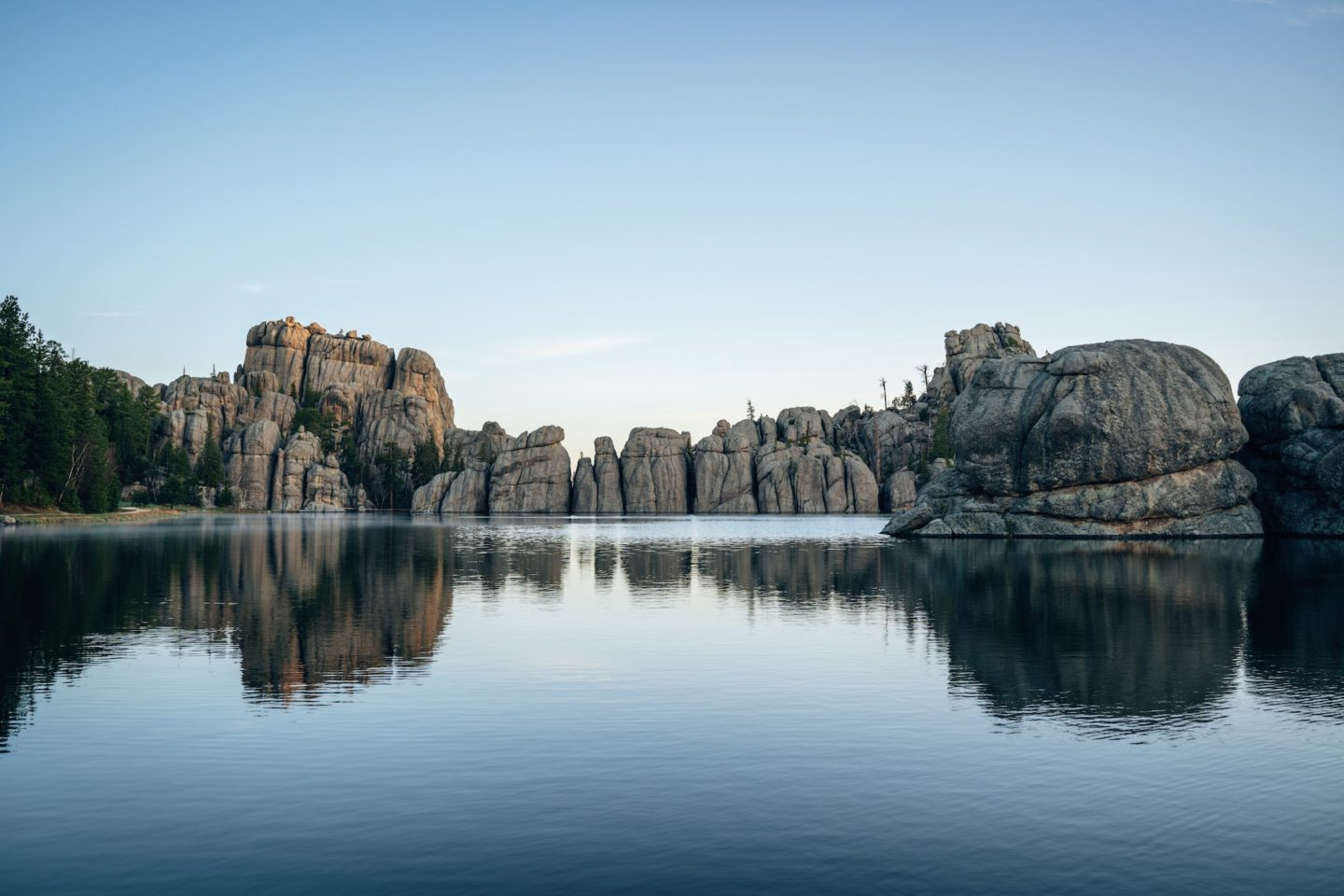
Wind Cave National Park is one of The Great 8 of South Dakota, which are 8 must-visit destinations when in South Dakota! In addition to Wind Cave National Park, there is Badlands National Park, Mount Rushmore National Memorial, Crazy Horse Memorial, Jewel Cave National Monument, Custer State Park, Historic Deadwood and The Missouri River. To read more about these, check out our THE GREAT 8 OF SOUTH DAKOTA article!
ULTIMATE GUIDE TO WIND CAVE NATIONAL PARK
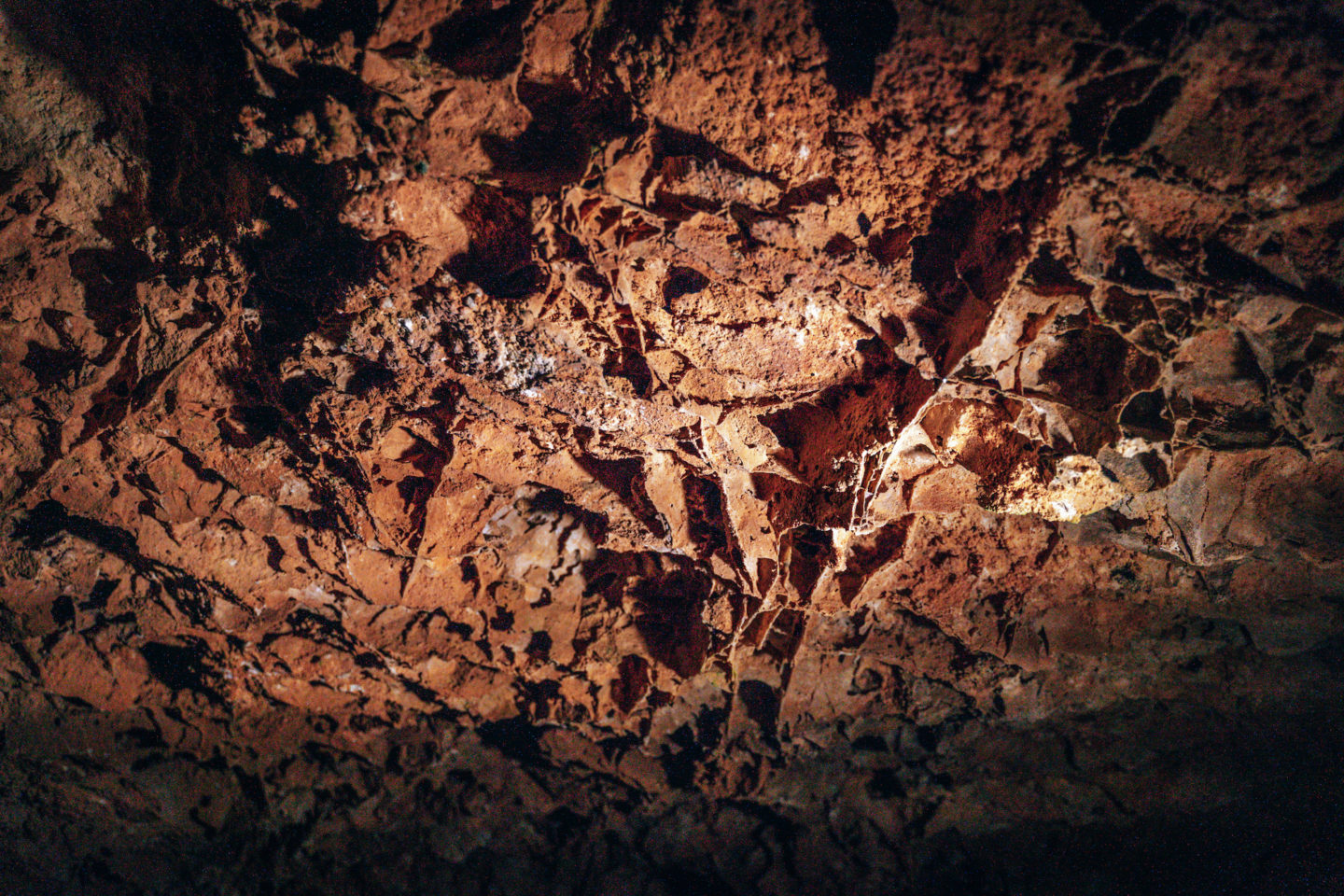
We hope this guide has provided you everything you could possibly need to plan a trip of your own to Wind Cave National Park. And if it didn’t, if we missed something, let us know below in the comments so we can make sure to update here and include in future posts!
For other National Park guides, head over to our National Park page HERE!
And for more info on South Dakota, check out Travel South Dakota!